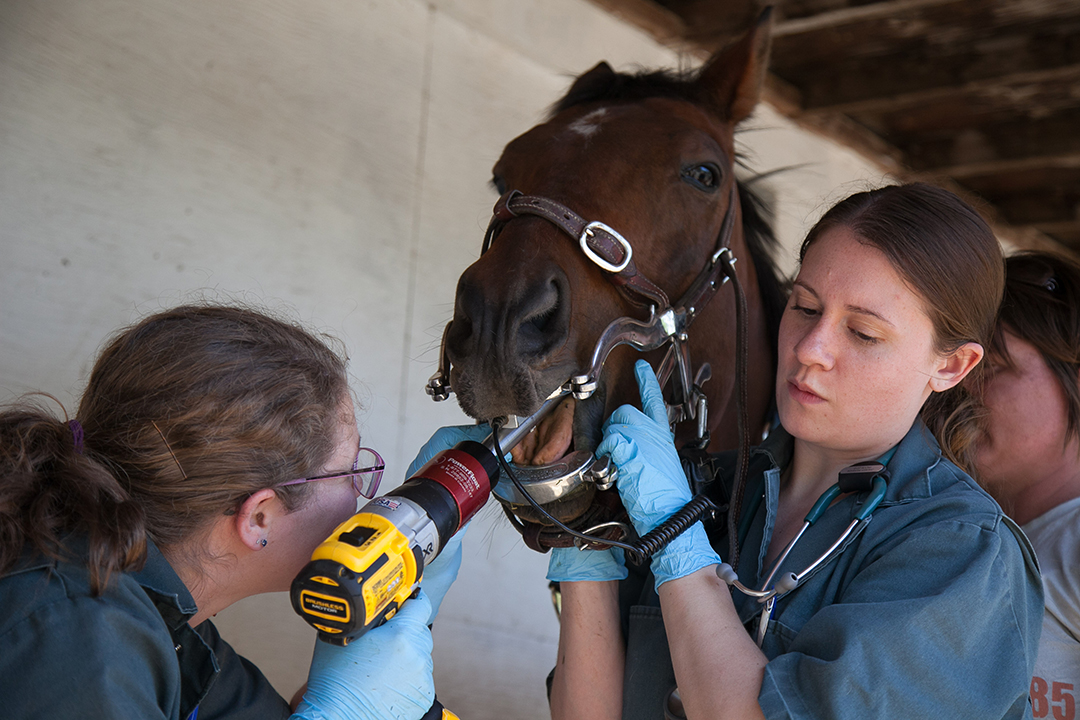When it comes to ensuring the well-being of your horse, understanding the intricate relationship between horse teeth and nutrition is pivotal. Horses, just like humans, require a well-balanced diet and proper dental care to maintain optimal health. But why exactly are horse teeth so important, and how do they relate to nutrition? Let’s delve into this fascinating subject.

The Anatomy of Horse Teeth
Before we can truly appreciate the significance of nutrition in relation to horse dental health, we need to understand the anatomy of a horse’s mouth. Horses have evolved to possess unique dental structures that allow them to grind and break down tough plant materials. Unlike humans, horses’ teeth grow continuously throughout their lives, which is why regular dental check-ups are crucial. Horse dental hygiene plays a vital role in preventing problems.
Types of Horse Teeth
Horses have different types of teeth, each serving a specific purpose. The incisors are located at the front and are used for cutting grass. The molars, found at the back, are responsible for grinding food. This grinding action is essential for proper digestion and nutrient absorption, which underscores the link between horse teeth and nutrition.
Common Dental Issues
Despite their robust dental structure, horses can still encounter various dental issues. Common problems include overgrown teeth, sharp enamel points, and dental infections. These issues can significantly affect a horse’s ability to chew properly, leading to nutritional deficiencies and weight loss. Regular check-ups can help identify horse tooth problems early on.
The Role of Nutrition in Dental Health
The connection between nutrition and horse teeth cannot be overstated. A horse’s diet plays a fundamental role in maintaining healthy teeth. Providing a balanced diet rich in fiber is essential for stimulating natural chewing behaviors. Chewing not only aids in digestion but also helps wear down teeth evenly, preventing overgrowth.
Essential Nutrients for Healthy Teeth
To promote healthy teeth, ensure your horse’s diet includes ample fiber, calcium, and phosphorus. These nutrients are critical for maintaining strong teeth and bones. Additionally, providing roughage, like hay, encourages natural chewing, which is vital for dental health.
Impact of Poor Nutrition
Insufficient or imbalanced nutrition can lead to numerous dental issues. For instance, a lack of fiber can result in inadequate chewing, leading to uneven tooth wear. This can cause sharp points and hooks, which can be painful and make eating difficult. For more on this, visit basic dental care for horses.
Maintaining Optimal Dental Health
Ensuring your horse’s dental health is a continuous process. Regular check-ups and a balanced diet are essential components of equine care. Here are some steps to ensure optimal dental health:
Regular Dental Check-ups
Schedule dental examinations at least once or twice a year. These check-ups allow veterinarians to identify any dental issues early and provide appropriate treatments. Visit equine dental care for more information.
Proper Feeding Practices
Providing your horse with high-quality forage and the right concentrates is crucial. Avoid sudden changes in diet and ensure that your horse has access to clean, fresh water at all times.
Dental Treatments
If dental problems are identified, timely treatments such as floating (filing down sharp points) can prevent further issues. Learn more about how often horses need their teeth floated at teeth floated.
Conclusion
The intricate relationship between horse teeth and nutrition is a crucial aspect of responsible horse ownership. By understanding and addressing the dental needs of your horse, you can ensure their overall health and well-being. Regular dental check-ups, a balanced diet, and proper feeding practices are the pillars of maintaining healthy teeth and a happy horse.

FAQs
Why is dental care important for horses?
Dental care is vital for horses because it ensures they can chew food properly, which is essential for digestion and nutrient absorption.
How often should horses have dental check-ups?
Horses should have dental check-ups at least once or twice a year to identify and address any dental issues early.
What is the impact of poor nutrition on horse teeth?
Poor nutrition can lead to inadequate chewing, uneven tooth wear, and painful dental issues.
This article contains affiliate links. We may earn a commission at no extra cost to you.
